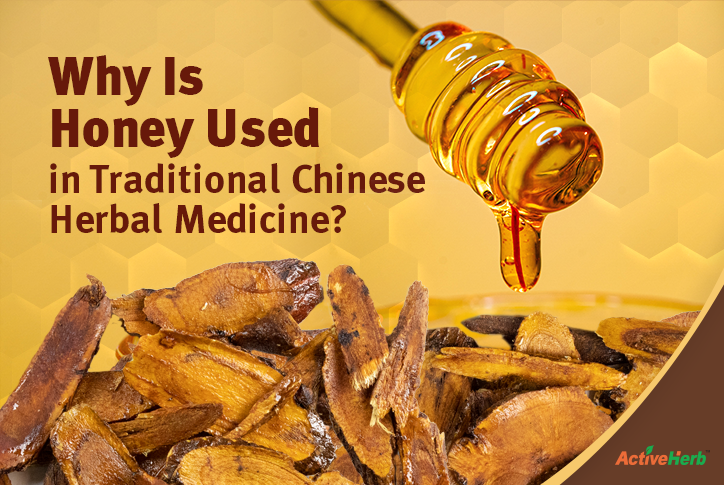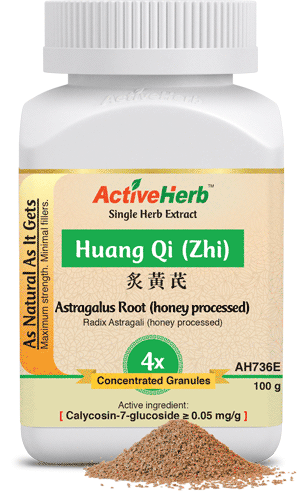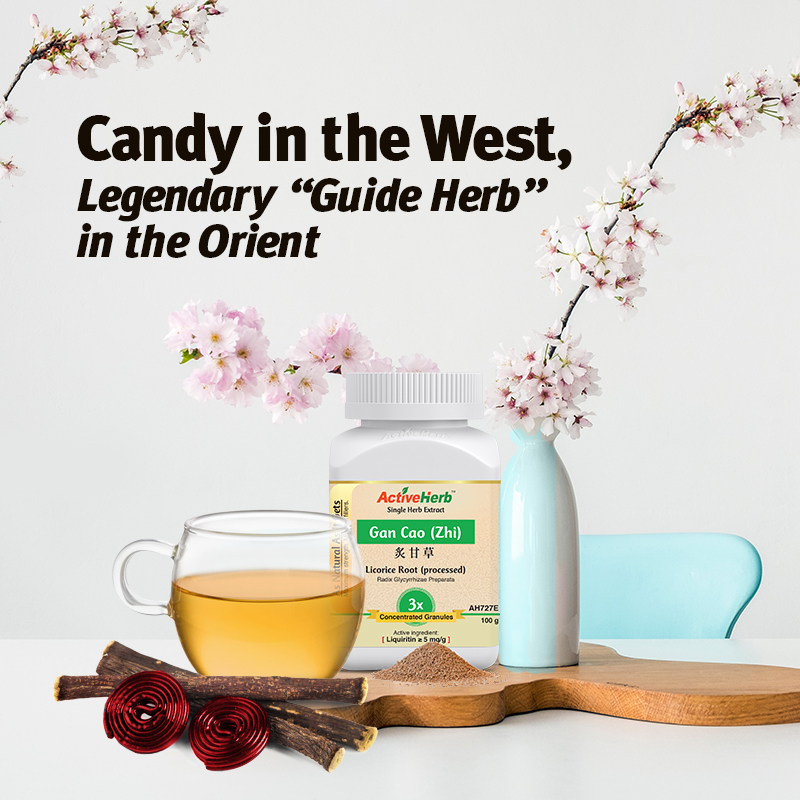Why Is Honey Used in Traditional Chinese Herbal Medicine?

If you’ve ever tried to purchase a Chinese herb only to be disappointed that it’s sold out, the same herb may actually be available, albeit processed in a different form. And this alternative to what you intended to purchase just might be better.
Case in point: astragalus root (Huang Qi). One of the most famous TCM herbs for immune support, it can fly off the shelves during the cold-weather months when the respiratory system needs the most attention.
But there’s a plan-B if Huang Qi is sold out: Huang Qi (Mi). What’s the difference? “Mi” means that the root is roasted in honey. But unlike a glucose-spiking-snack coated in honey, when herbs like astragalus are processed in honey, good things can happen…
Why is Honey Used In TCM?
According to Advances in Botanical Research, honey has played an important role in traditional medicine for thousands of years and is one of the most common adjuvants in the processing of traditional Chinese medicines.
Adjuvants enhance the efficacy and reduce the toxicity of crude drugs and herbal ingredients. When adjuvants like honey are used, the profile of the active ingredient or ingredients can vary from the herb that’s not roasted in honey.
Of course, honey on its own has been used medicinally in Chinese medicine. (And it goes without saying, in many other traditional societies). But for the purposes of this TCM concepts blog post, we’ll focus on why honey is specifically used, and we’ll put the spotlight on a few herbs that are honey-roasted such as astragalus.
Properties of Honey In TCM
Honey is used in TCM herbal processing to achieve 4 primary functions:
- To moderate the harshness of certain herbs.
- Reduce volatile oil content of certain herbs.
- To moisten the Lungs.
- To boost Qi-nourishing potential.
A study published in the journal, Molecules, explains that honey-processed astragalus strengthens the tonic effect. In comparison to regular astragalus, Huang Qi (Mi) (honey-roasted) “improves the pharmacological activity,” the researchers state.
So then the question becomes this…
Regular astragalus has been shown in research to support the immune system; cellular response, and blood sugar. So then why not take Huang Qi (Mi) instead of regular Huang Qi?
Well, the truth is that only a traditional Chinese medicine practitioner/herbalist can make a proper recommendation for you. But let’s say you do want to support your immune system and regular astragalus is sold out. Will taking Huang Qi (Mi) be better for you?
Again, that should be up to the discretion of a TCM expert. However, just like your car can feel like it’s in need of a tune-up, if you’re feeling run down and you need to tonify your Qi, then Huang Qi (Mi) may be more effective. The TCM experts who wrote the study in Molecules also suggest that honey-prepared astragalus may offer more robust support for a normal inflammation response in people that already have a healthy inflammatory response.
Other TCM Herbs With “Mi”
Astragalus root is quickly becoming a household herbal name in the West. But one herb that you may not be familiar with that’s processed with honey is Qian Hu. Qian Hu is also known by the curious-sounding name, Hogfennel root. In TCM theory, the herb clears a Dry, Cold invasion and works by eliminating Phlegm from the Lungs. Another TCM herb that is sometimes processed with honey is Kuan Dong Hua, or Coltsfoot. Kuan Dong Huan is yet another herb that may transform Phlegm and moisten the Lungs.
One of TCM’s 50 legendary herbs, Licorice Root is often roasted in honey to boost its Spleen-stimulating potential, which in turn, leads to enhanced Qi production and circulation in the body.
So next time your favorite TCM herb is temporarily out of stock, see if there’s a honey-processed (Mi) version of it.







